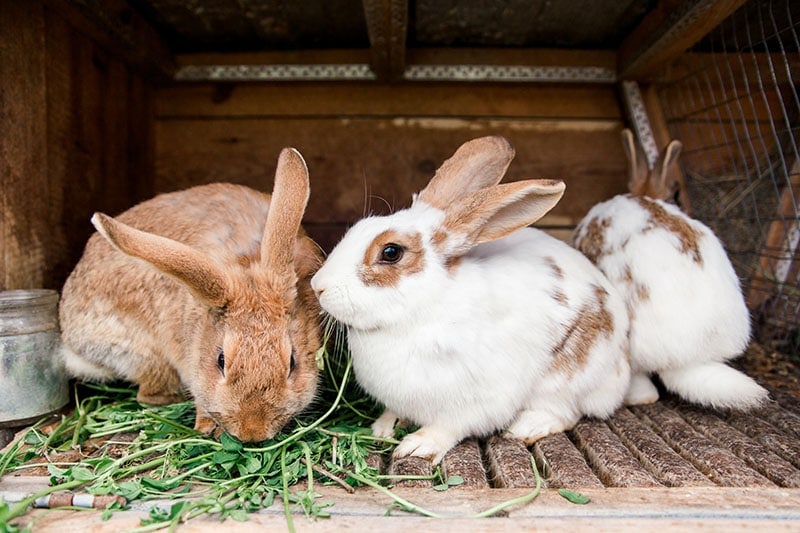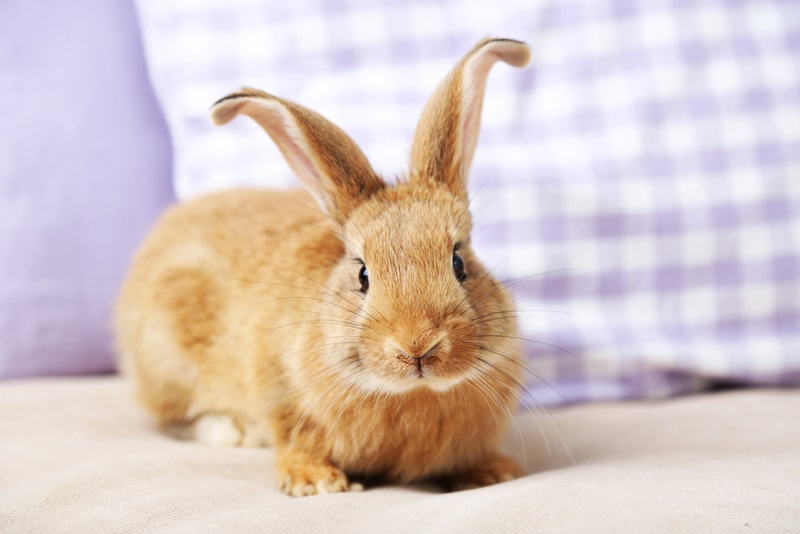10 Friendliest Rabbit Breeds (With Pictures)

Updated on

Click to Skip Ahead
Rabbits are delightful and charming animals that make wonderful family pets. Sure, they’re not as animated and personable as dogs, but they can be affectionate, unintentionally hilarious, and can bring a lot of joy and laughter to your home.
However, with so many different breeds to choose from, selecting the best rabbit for your family can be a daunting task. In this piece, we’ll go over the top 10 friendliest and most affectionate rabbit breeds to help you choose the perfect bunny for you and your family.
The 10 Friendliest Rabbit Breeds
1. Mini Lop
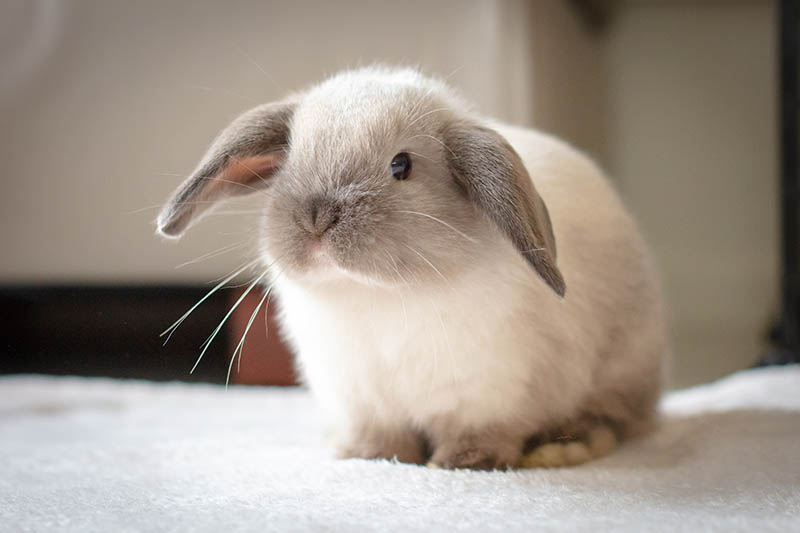
| Colors: | White, black, tan |
| Weight: | 6–8 pounds |
The Mini Lop is a small and adorable breed that are revered for their sweet and friendly disposition. They’re easy to handle, love to cuddle, and are ideal for families with children. Mini Lops are very active and enjoy playing, so it’s important to provide them with adequate space to move around. They have soft, dense fur that requires regular grooming, but they’re generally easy to maintain.
2. Holland Lop
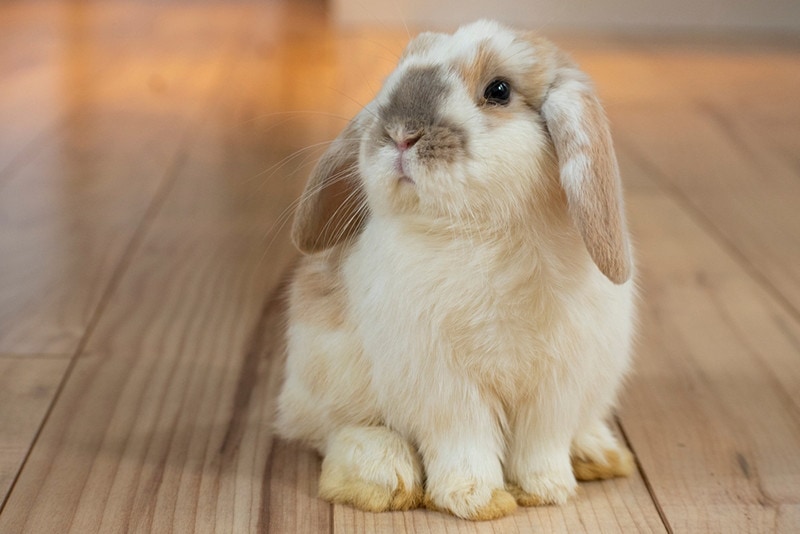
| Colors: | Solid, bi-colored, or tri-colored in black, white, black, gray, and tan |
| Weight: | 6–8 pounds |
Holland Lops are another small and friendly breed that makes an excellent family pet. They’re known for their laid-back and gentle nature, which makes them ideal for families with children. Holland Lops are also very social and love to interact with their owners, so they need plenty of attention and affection. They have a thick and soft coat that requires daily brushing to prevent matting.
3. Lionhead
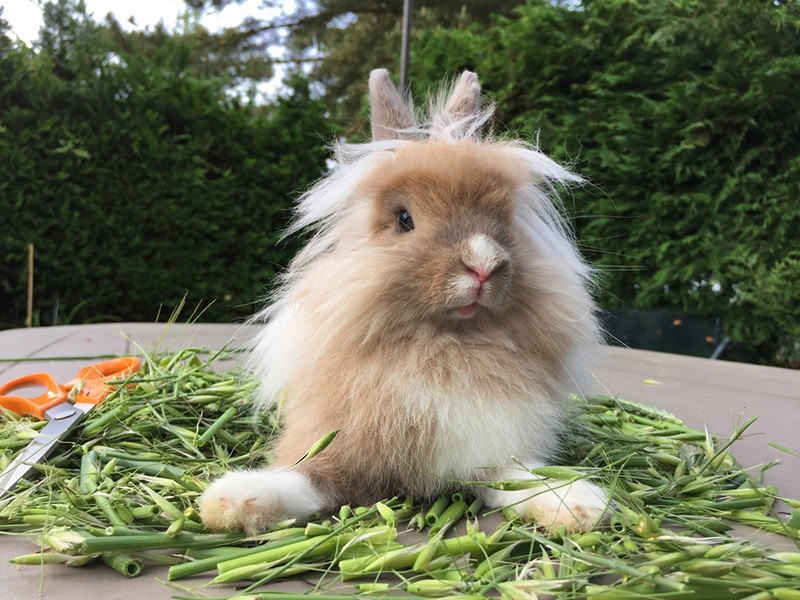
| Colors: | Solid, bi-colored, or tri-colored in black, rust, white, and gray |
| Weight: | 5–7 pounds |
The Lionhead is a small breed that is known for its distinctive mane of long hair (like male lions) around its head. They’re a friendly, affectionate rabbit breed that loves to be around people. Lionheads are also very intelligent and can be trained to do tricks and follow simple commands. They have a thick coat that requires regular grooming, but they’re easy to maintain.
4. Mini Rex
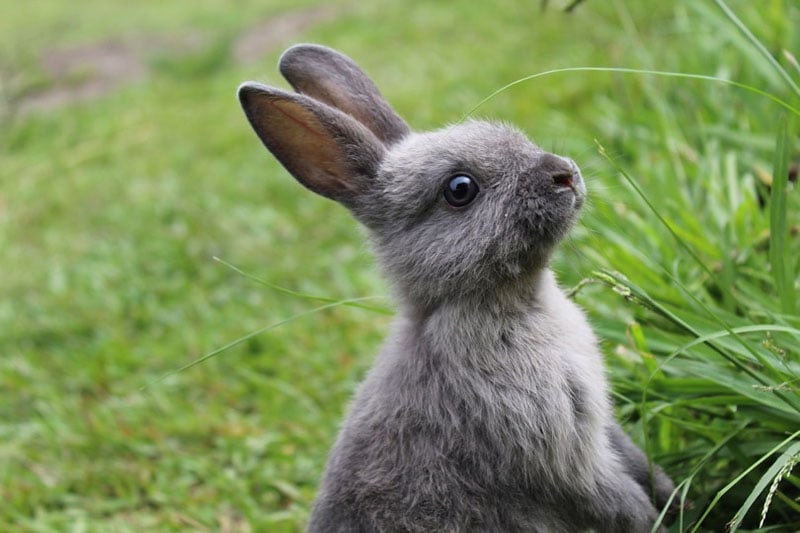
| Colors: | Black, chinchilla, chocolate, otter, sable point, seal, white, bi-colored, and tri-colored |
| Weight: | 3–5 pounds |
The Mini Rex is an adorable and energetic rabbit breed easily found in the US. Due to their small size, they are a very popular choice for a pet rabbit. Mini Rexes are very friendly, sociable, and love to interact with their owners. These rabbits are also very active and enjoy playing, so they need plenty of toys and space to move around. They have a short, dense coat that requires minimal grooming.
5. English Spot
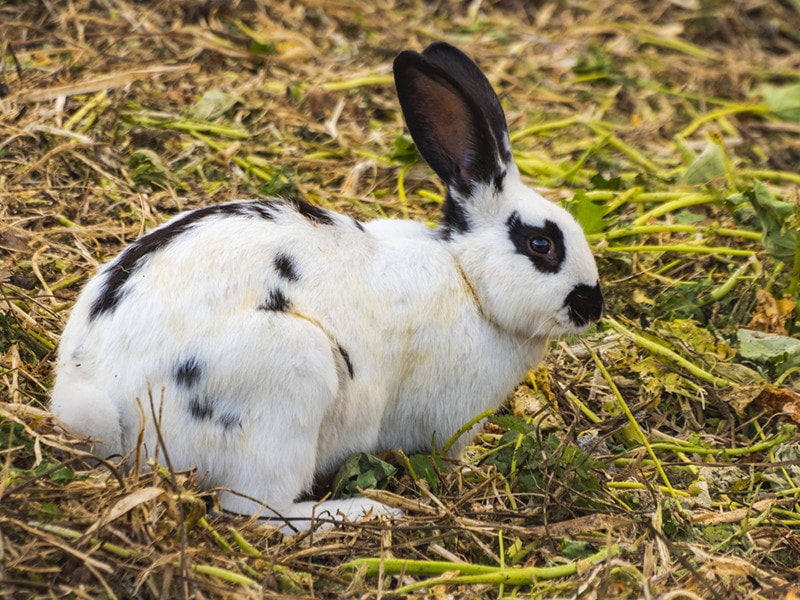
| Colors: | Black, white, or black and white spots (most common) |
| Weight: | 5–8 pounds |
The English Spot is a medium-sized breed known for its distinctive black and white circular markings and friendly personality. They’re very outgoing, active, and love to play, making them ideal for families with children. English Spots are also very intelligent and can be trained to do tricks and follow commands. They have a short, glossy coat that requires minimal grooming.
- Related Read: How Much Do English Spot Rabbits Cost
6. Netherland Dwarf
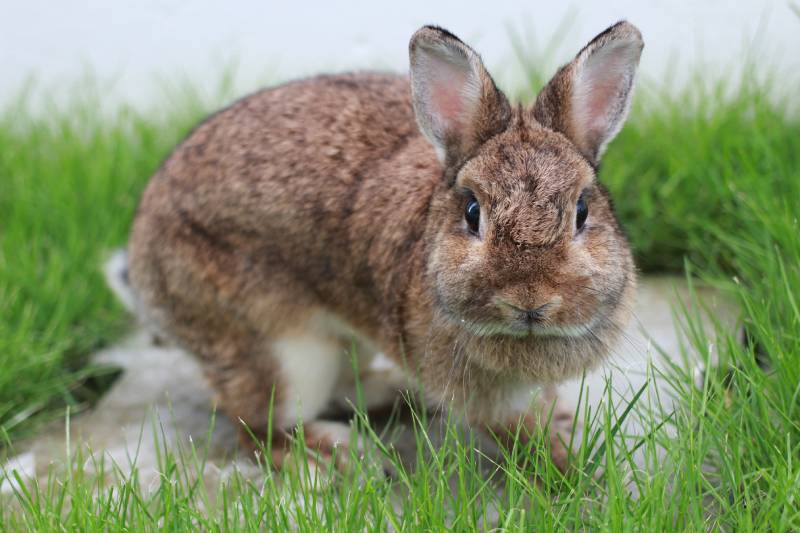
| Colors: | Solid, bi-colored, or tri-colored in black, white, black, gray, and tan |
| Weight: | 2–3 pounds |
These rabbits are one of the most popular dwarf breeds and it’s easy to buy them in the US. They are small and fairly compact, weighing only 2 to 3 pounds. They come in a variety of colors (like beige, black, white, and bi-colored) and have a friendly and playful temperament. They’re also known for their cute and round faces.
7. Flemish Giant
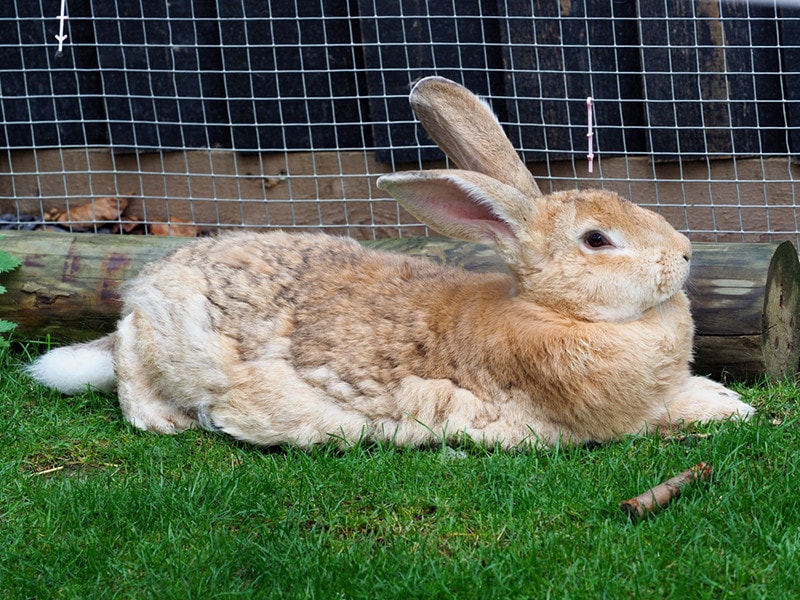
| Colors: | Solid, bi-colored, or tri-colored in black, white, black, gray, and tan |
| Weight: | 10–20 pounds |
Flemish Giant rabbits are one of the most popular giant breeds. They can weigh up to 20 pounds and have a friendly and docile temperament. These laid-back bunnies do require a lot of space to move around, and their diet needs to be carefully monitored to prevent obesity. So be sure to have some space ready for these large bunnies. These easygoing rabbits come in many colors including gray, white, tan, and bi-colors.
8. Angora
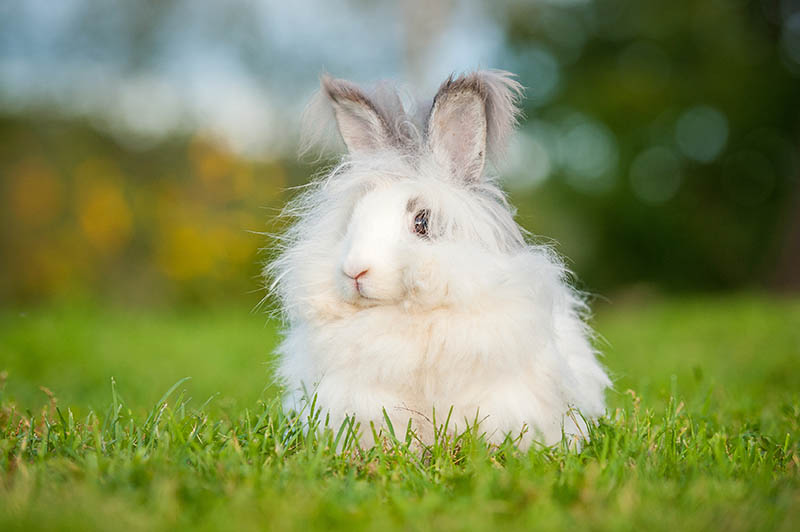
| Colors: | Solid, bi-colored, or tri-colored in black, white, black, gray, and tan |
| Weight: | 5–8 pounds |
Angora bunnies are a gorgeous breed known for their long and fluffy fur (especially at the tip of their ears). They have a very unique appearance that makes them instantly recognizable. They require regular grooming to prevent matting and excessive shedding, and their diet needs to be carefully monitored to prevent hairballs. They come in a variety of colors (though most commonly snow white) and have a friendly and social nature.
9. Harlequin
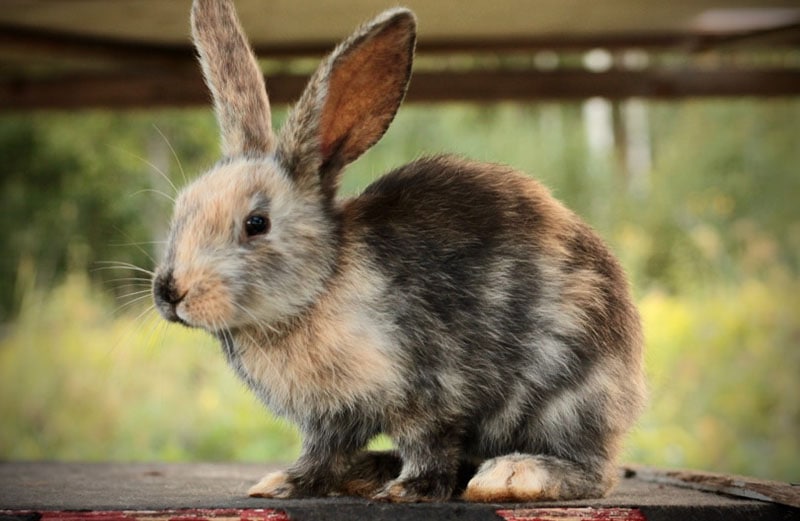
| Colors: | Bi-colored and tri-colored in black mostly, white, black, gray, and tan |
| Weight: | 6–8 pounds |
Harlequin rabbits are a unique breed known for their distinctive coat pattern. They have a calm and somewhat social personality and come in many different bi- and tri-colors (which makes them instantly recognizable) including black, white, gray, and tan. In some cases, these rabbits will even resemble small, hopping tigers with long ears due to their stripe patterns. They’re usually of a medium size and typically weigh anywhere between 6 to 8 pounds. They’re one of the most affectionate rabbit breeds around and you’re sure to love their company.
10. California Rabbit
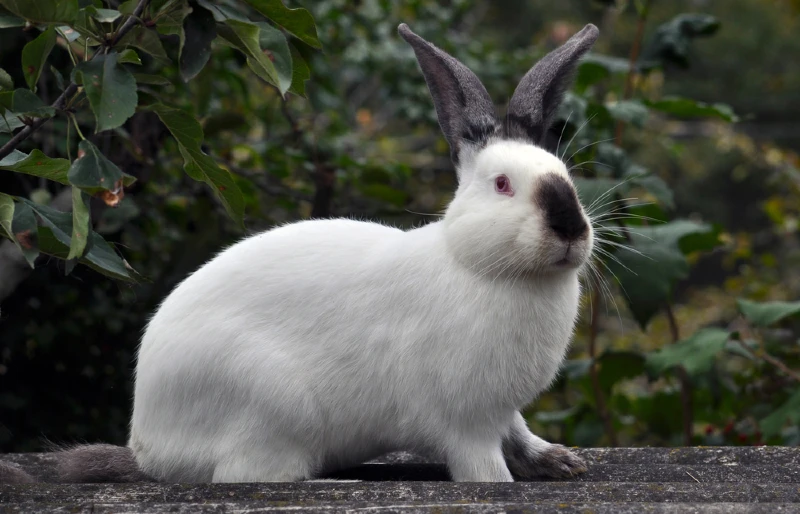
| Colors: | Typically white with black noses and ears, and paws |
| Weight: | 6–8 pounds |
Also known as the California White, the Californian rabbit is known for its calm and docile temperament, making it a popular choice as a pet. These rabbis are also pretty easy to identify as they’re usually white with black ears, black fur around their noses, and black fur on the tip of their paws. These rabbits are also used for meat production due to their large size and fast growth rate. It’s a medium to large-sized breed with a compact body and short, erect ears. Their fur is rather short and dense, with a soft texture. The breed is easy to care for, with minimal grooming required.
Choosing the Right Rabbit for Your Home
Choosing a rabbit breed can be an exciting and fulfilling experience, but it can also be overwhelming, especially for first-time owners. With so many rabbit breeds available, it’s helpful to consider several factors before making a final decision.
Sizes: Dwarf, Giant, and Medium-Sized
One of the most important factors to consider is the rabbit’s size. While some breeds are small and compact, others can grow up to be quite large. It’s important to consider the size of the rabbit and the space you have available to ensure that the rabbit is comfortable and has enough room to move around, whether you plan on keeping them indoors or outside in a hutch.
Rabbit breeds are generally classified into three categories based on their size: dwarf, medium-sized, and giant.
Dwarf Rabbits
These are the smallest of the three categories, weighing between 2 and 4 pounds. These rabbits are popular as pets because of their cute and cuddly appearance. They’re also easier to handle and require less space than larger breeds.
Medium-sized Rabbits
These are the most common type of rabbit breed. They weigh between 4 and 10 pounds and are easy to handle and care for. They’re also popular as pets because of their friendly and social nature.
Giant Rabbits
Giant rabbits can weigh up to 20 pounds or more. These rabbits are not as common as dwarf or medium-sized breeds and require a lot of space to move around. They’re also more difficult to handle due to their size and strength.
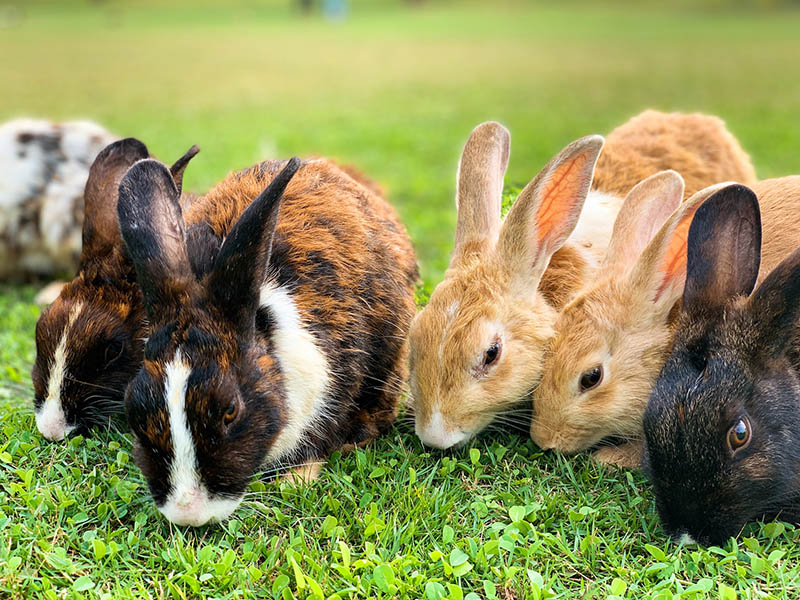
Temperament
Another factor to consider when choosing a rabbit breed is temperament. While all rabbits have their unique personalities, some breeds tend to be more docile and friendlier than others. If you have children or other pets, it’s important to choose a breed that is known for being gentle and easy to handle. Additionally, some breeds require more attention and interaction than others, so it’s important to choose a breed that matches your lifestyle and schedule.
Health Considerations
Health considerations are also essential when choosing a rabbit breed. Some breeds are more prone to certain health issues than others, so it’s best to research the breed’s health history and potential health problems. It’s also crucial to choose a reputable breeder who conducts health checks and provides documentation of the rabbit’s health history.
Another factor to consider is the rabbit’s grooming needs. Some breeds require daily grooming to maintain their coat’s health and prevent matting, while others have shorter coats that require less maintenance. It’s important to choose a breed that matches your grooming abilities and schedule.
Ownership Purpose
Yes, ownership purpose is really a thing, just like with any other pet ownership. It’s a good idea to consider the purpose of owning a rabbit. Why? Because some breeds are better suited for show or breeding, while others are great as pets or for meat production. It’s important to choose a breed that aligns with your goals and intentions for owning a rabbit.
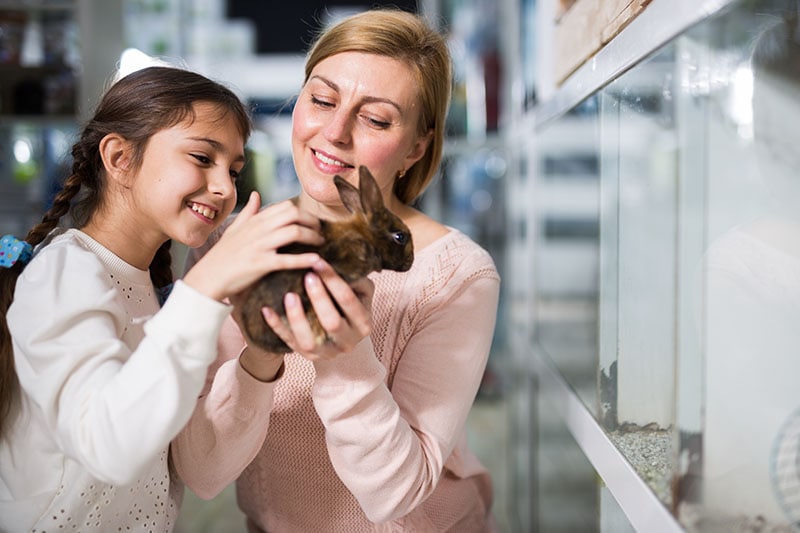
Preparing for Your New Rabbit
Once you have selected the best rabbit breed for your family, it’s time to prepare for your new furry companion. First, you need to ensure that you have adequate housing for your pet. Rabbits require a spacious and secure living area that is free from drafts and hazards. You also need to provide them with fresh food and water daily, as well as a variety of toys and activities to keep them mentally stimulated.
Grooming is an essential aspect of rabbit care, and you need to brush your pet regularly to prevent matting and hairballs. You also need to ensure that your rabbit receives regular veterinary care, including vaccinations and check-ups.
Bonding with Your Rabbit
Rabbits are social animals that thrive on interaction and attention from their owners. To build a strong bond with your rabbit, you need to spend time with them every day playing, petting, and cuddling. You can also train your rabbit to do tricks and follow commands, which can be a fun and rewarding experience for both you and your pet.
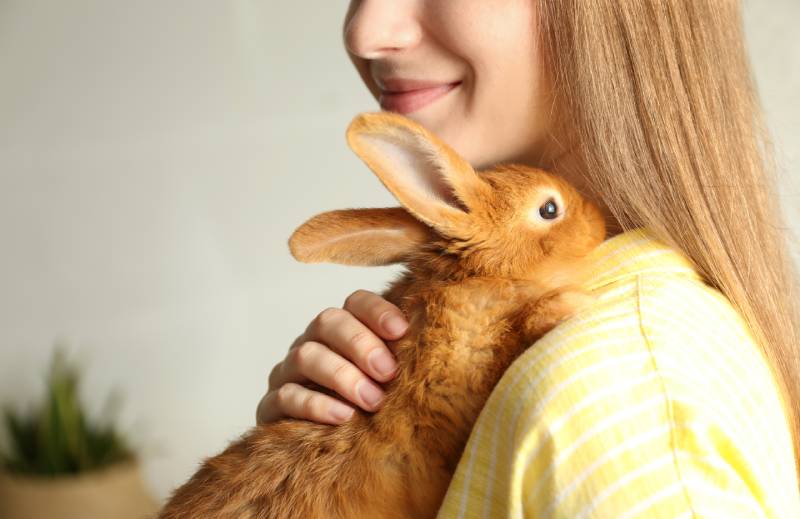
The 3 Common Rabbit Health Issues & How to Prevent Them
Like all pets, rabbits can suffer from a range of health issues. Some of the most common health issues that they face include dental problems, digestive problems, and respiratory infections. To prevent these health problems, you’ll need to provide your rabbit with a healthy diet, plenty of exercise and mental stimulation, regular grooming, and veterinary care.
1. Dental Issues
Dental problems are one of the most common health issues that rabbits face. As herbivores, rabbits have teeth that constantly grow throughout their lives. If their teeth aren’t worn down properly, they can develop sharp edges or even grow too long, which can make it difficult for them to eat. To prevent dental problems, you should ensure that your rabbit’s diet includes plenty of hay and fresh vegetables. You should also provide your rabbit with chew toys and blocks to help wear down their teeth.
2. Digestive Issues
Digestive problems are also a common health issue for rabbits. Rabbits have a delicate digestive system, and they’re prone to developing gastrointestinal stasis. This occurs when the digestive system slows down or stops working altogether, which can lead to serious health problems.
In terms of prevention, it’s best to provide your rabbit with a high-fiber diet that includes hay, fresh vegetables, and a limited number of pellets. You should also ensure that your rabbit always has access to fresh water.
3. Respiratory Infections
Respiratory infections are another common health issue that rabbits face. These infections can be caused by a variety of factors, including poor ventilation, dust, or exposure to other sick animals. Signs of respiratory infections include sneezing, coughing, and discharge from the nose or eyes.
To prevent respiratory infections, you should provide your rabbit with a clean and well-ventilated living space. You should also avoid exposing your rabbit to other sick animals and ensure that their living space is free from dust and other irritants.
In addition to these common health issues, rabbits are also prone to other problems like ear infections, skin infections, and urinary tract infections. To ensure that your rabbit stays healthy, you should monitor them closely for any signs of illness or discomfort. You should also take them to a veterinarian for regular check-ups and vaccinations.

Training and Socializing Your Rabbit
Training and socializing your rabbit are essential aspects of rabbit care. Rabbits are actually pretty smart little animals. You can train your rabbit to use a litter box, come when called, and even perform simple tricks to impress houseguests. Socializing your rabbit involves exposing them to various people, animals, and environments to help them become more confident and well-adjusted.
Wrapping Things Up
In conclusion, rabbits are delightful and charming pets that make excellent family companions. They’re friendly, affectionate, and love to interact with their owners. By selecting the right breed, preparing adequately, and providing proper care and attention, you can enjoy a lifetime of love and companionship with your furry friend.
Featured Image Credit: New Africa, Shutterstock


